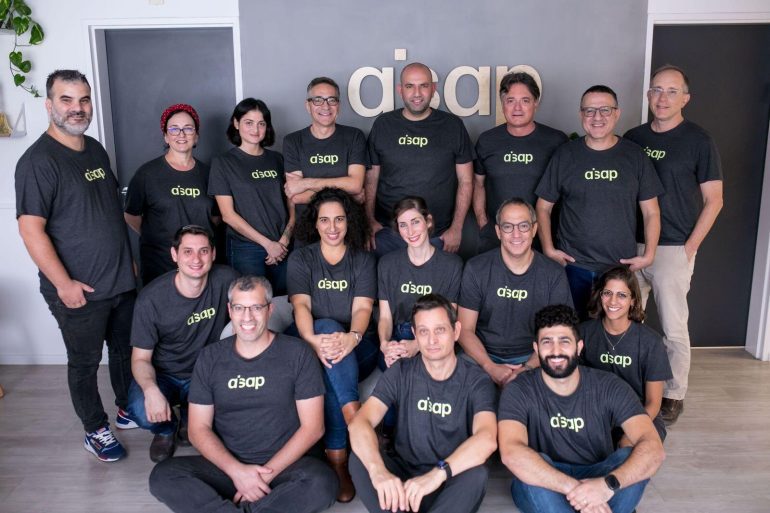- AISAP secures $13 million in seed funding for its AI-powered Point Of Care Assisted Diagnosis (POCAD) solution.
- Traditional ultrasound diagnosis faces delays due to lack of qualified professionals and logistical challenges.
- AISAP’s POCAD solution provides highly accurate AI-powered diagnoses, including an urgency score for case prioritization.
- The technology offers rapid analysis, delivering results in as little as 5 minutes compared to weeks with traditional methods.
- AISAP’s algorithms are trained on over 300,000 studies and validated by medical experts from renowned institutions.
- Recent studies show AISAP’s solution identified previously undetected medical conditions in 29% of cases.
- Co-founded by experts from medical, technology, and intelligence sectors, AISAP aims to democratize healthcare access.
- The company plans to expand beyond cardiac medicine to address other anatomical areas.
Main AI News:
In a groundbreaking move, AISAP, the trailblazer in AI-powered Point Of Care Assisted Diagnosis (POCAD) solutions, has announced the successful closure of its seed funding round, raising an impressive $13 million. The investment was spearheaded by Harel Insurance Investments & Financial Services Ltd. and Shoni Top Ventures, L.P.
Ultrasound scans play a pivotal role in the detection and diagnosis of numerous medical conditions. However, the traditional process often entails prolonged waiting periods of weeks or even months before patients receive a diagnosis. This delay is primarily attributed to the shortage of qualified medical professionals and logistical challenges associated with patient transportation to scanning facilities. Consequently, many individuals are left underserved.
While portable Point Of Care Ultrasound (POCUS) devices offer a semblance of convenience by eliminating the need for patient transfers, they still require specialized expertise for operation, perpetuating the diagnostic bottleneck.
AISAP’s innovative POCAD solution addresses this critical issue by delivering AI-powered diagnoses that are not only highly accurate but also comprehensible to any physician, irrespective of their ultrasound proficiency. Key features include an exclusive “urgency score” for prioritizing cases based on severity, a scan quality assessment tool to ensure precision even with novice operators, and advanced Deep Learning AI capabilities for accurate readings from handheld devices, even with suboptimal image quality. Moreover, unlike conventional POCUS devices, AISAP’s solution offers detailed diagnoses of specific cardiovascular valves. Remarkably, while traditional ultrasound assessments typically take weeks to provide comprehensive analysis, AISAP’s solution accomplishes this feat in as little as 5 minutes.
Fueling its groundbreaking technology, AISAP’s algorithms have been honed through the analysis of over 300,000 studies comprising 24 million video clips, validated by esteemed medical experts from renowned institutions including The Mayo Clinic, Inova Health Foundation, Jefferson Health, and Poriya Institute.
In a compelling validation of its efficacy, a recent study conducted at Israel’s Sheba Medical Center involved 660 patients who underwent AISAP scans at Emergency Department or Internal Medicine units without prior full ultrasound examinations. Astonishingly, the AISAP solution identified previously-undetected moderate medical conditions in 29% of cases.
Founded by a diverse cohort of luminaries from the medical, technological, and intelligence domains, AISAP is driven by a mission to democratize access to healthcare universally. Co-founded by Adiel Am-Shalom, a veteran of Israel Defense Force’s elite 8200 intelligence unit and the founder of IDL; Ehud Raanani, Director of the Leviev Cardiovascular and Thoracic Center at Israel’s Sheba Medical Center; Robert Klempfner, Director of the Israeli Center for Cardiovascular Research; and Ehud Schwammenthal, a globally recognized echocardiography expert and founder of Ventor Technologies and Magenta Medical, AISAP’s POCAD™ solution currently targets cardiac medicine while diversifying its product portfolio to encompass other anatomical areas.
Roni Attali, CEO of AISAP, emphasizes the criticality of timely ultrasound diagnoses, asserting, “Obtaining an accurate ultrasound diagnosis in time can literally be the difference between life and death, so the fact that so many patients are forced to wait up to a month for one is nothing short of a global health crisis.” He underscores the disproportionate impact on disadvantaged populations, particularly in rural or resource-constrained regions.
Tamir Pardo, former head of Israel’s Mossad covert intelligence agency and current head of AISAP’s Strategic Board, lauds the transformative potential of AISAP’s solution, remarking, “The ability to provide critical diagnoses anywhere, anytime, without the need for a dedicated expert, is a paradigm shift that could save countless lives.” Pardo’s alignment with AISAP’s mission underscores the strategic significance of the investment in advancing this noble endeavor.
Conclusion:
AISAP’s successful funding round and innovative AI-powered ultrasound solution mark a significant advancement in the healthcare market. By addressing the longstanding challenges of timely diagnosis and accessibility, AISAP stands poised to revolutionize healthcare delivery, potentially saving countless lives and reshaping industry standards. Investors and stakeholders should closely monitor AISAP’s trajectory as it expands its reach and impacts across medical disciplines.

